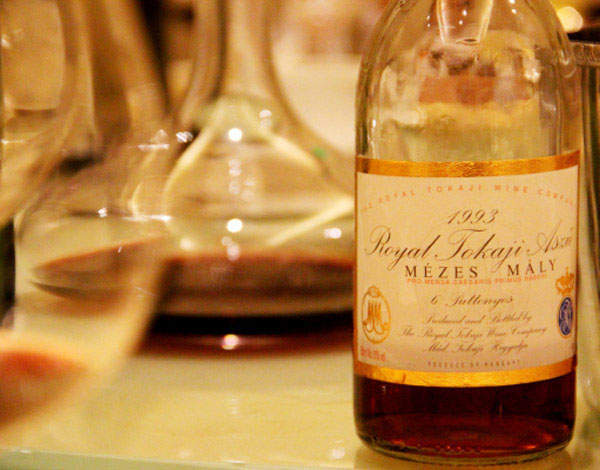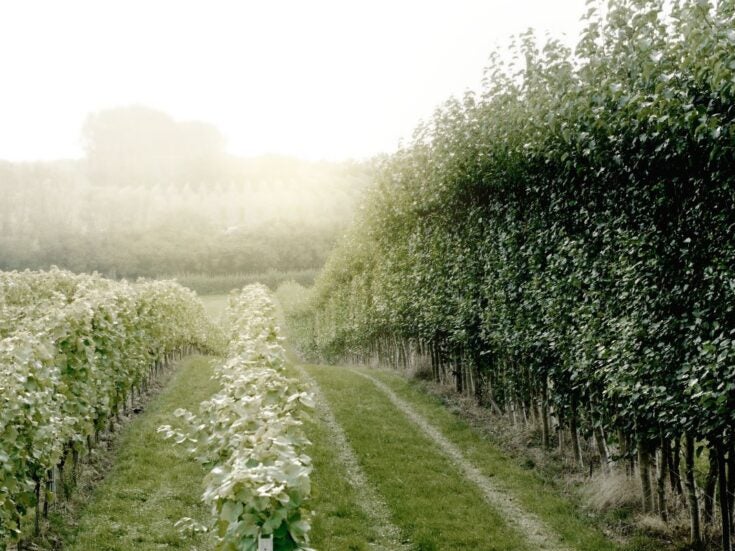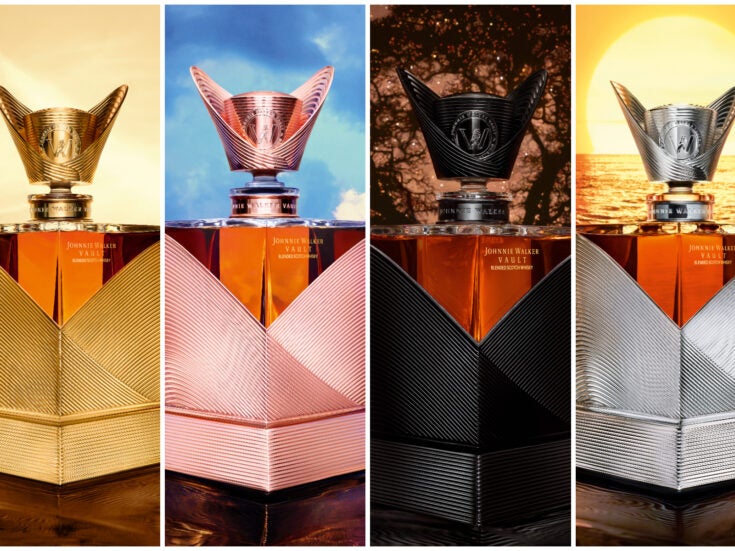

There is nothing better at this time of year, as we speed yet again towards Christmas, than a fine dessert wine. Indeed, I reckon there should be a law making them obligatory for your festive feasts. The very best are rare, exotic, decadent, seductive, complex and tongue-tinglingly tasty.
I love the alchemy behind them, too, for most of these great wines — the Sauternes of Bordeaux, say, the Vendanges Tardives of Alsace, the Tokajis of Hungary and the icewines of Canada — start life so unpromisingly, testing to the limit the winemaker’s skills and trust in nature.
The wines might, for example, be made from grapes that have been left to hang on the vine long after the conventional harvest is done, shrivelled and dried into an almost juiceless state in the late autumn sun. They might be wrought from rotten and mouldy grapes infected by botrytis, that strange fungus that thrives in the mists and fogs that steal over the vineyards of Sauternes and certain other blessed spots.
Or they might even be made from grapes frozen solid to the vine in the deep snows of winter, laboriously picked berry by berry in the harshest of conditions. In each case, though, the juice of the grape is left concentrated and intense, perfect for fermenting into a richly sweet wine.
The trouble is, of course, that nature doesn’t always do her bit. And even if she does it’s a wasteful, costly business making such wines. In Bordeaux it is said that one vine will give you one bottle of claret, but only one glass of Sauternes.
We really should stop calling them dessert wines, though, for to do so is to pigeonhole them unfairly. Of course, it goes without saying that they go beautifully with all manner of puddings (except chocolate, curiously enough, which can be fiendishly tricky to match and is best partnered by a tawny port or a full-flavoured Italian amarone), but they are much more versatile than that.
They are great on their own, as a pick-me-up at elevenses or as a contemplative post-prandial digestif; they are perfect with rich starters such as pan-fried foie gras, goose rillettes or smoked eel, and they can go brilliantly with cheese.
In fact, if you haven’t had a vintage gouda or Mimolette très vieille with a glass of gloriously sweet Hungarian Tokaji 6 Puttonyos Aszú, then I truly envy you, for you have an eye-opening, life-enhancing treat in store. Both the wine and the cheeses have similar marmaladey, dried citrus peel notes and mingle in the mouth so deliciously.
Or how about a full flavoured, barley-sugar-sweet Sauternes with some savoury Stilton or creamy St Agur? Here the unctuous sweetness of the wine perfectly opposes and contrasts with the salty tang of the cheeses.
And, at the risk of lowering the tone somewhat, I must report that a friend of mine considers the lusciously sweet Tokaji the perfect bedroom wine, best sipped from the navel. Someone else’s, of course, rather than your own.
No wonder Catherine the Great ordered a Cossack detachment to be stationed permanently in the town of Tokaj to guard the wines and vineyards purchased by the Russian imperial household, or that Louis XIV referred to Tokaji as ‘the wine of kings and the king of wines’.
So, let’s call these great wines ‘sweet wines’ rather than ‘dessert wines’ and just delight in them and their flexibility.
TASTING NOTES
Pol Roger NV Rich Champagne (£45; Majestic)
The small, family-owned house of Pol Roger in the Avenue de Champagne in Epernay makes exemplary wines. Its sweet champagne, or ‘Rich’, was the first such fizz I ever tasted and I was instantly smitten. Blended from 30 different base wines with an equal amount of Chardonnay, Pinot Noir and Pinot Meunier, it is an exact replica of the dry Pol Roger NV, but with extra sugar. It is perfect as a mid-morning reviver and there is nothing better with wedding cake.
2012 Ziraldo Vidal Icewine (£49 per 37.5cl; The Perfect Cellar)
Donald Ziraldo has been a tireless pioneer of and ambassador for Canadian icewine. He set up the Inniskillin winery with Karl Kaiser in the 1970s and now runs his own eponymous enterprise. This exquisite example is made from the hybrid grape Vidal, grown in the Niagara peninsula, where it freezes naturally on the vine and is hand-picked berry by berry. It is sumptuously sweet but with such high inherent acidity that it is fresh and vibrant rather than cloying. It is low in alcohol, too, at just 9.8 per cent, and makes a tremendous digestif.
2005 Domaine Bellegarde Séléction DB, Jurançon Moelleux (£62; Yapp Bros)
The great sweet wines of Jurançon in south-west France are absurdly neglected. They are every inch as tasty as top Sauternes and a heck of a lot cheaper. Pascal Labasse of Domaine Bellegarde has here crafted an absolute beauty from Gros and Petit Manseng grapes. The wine is remarkably rich and intense with complex notes of quince, apricot, honey and crystallised fruits. These wines age well, and although spot-on now this will give pleasure for years to come.
2008 Royal Tokaji Mézes Mály 6 Puttonyos Aszú (£99.95 per 50cl; Berry Bros & Rudd)
The wines of Tokaji in Hungary have undergone a renaissance of late. They remain rare, though, and only 1,776 bottles of this peerless nectar were produced, the fruit coming from a single vineyard. Shrivelled (aszú), almost juiceless raisiny grapes are mixed with a dry base wine and fermented in oak barrels to give a wine of marmaladey sweetness and exhilarating, refreshing acidity. Enjoy with tarte tatin or vintage gouda.
2009 Ch. Climens, Barsac (£102; Berry Bros & Rudd)
Château Climens is the top estate in Barsac (one of the communes of Sauternes) and one of the very few properties to threaten the pre-eminence of the legendary Château d’Yquem, despite its wines selling at a fraction the price. Its elegant, delicate wines are 100 per cent Sémillon, rather than the usual Sémillon/Sauvignon Blanc Sauternes blend. Lip-smackingly sweet but with weight and real character and complexity, it’s the essential partner for foie gras.
2001 Trimbach Gewurztraminer Sélections de Grains Nobles (£103; Great Western Wine)
The Trimbach family of Ribeauvillé in Alsace has been making wine since 1626. The spicy, lychee-like Gewurztraminer is an ideal grape for late harvest sweet wines, but here the grapes are not only late-picked but also affected by botrytis. The result is a wine of astonishing depth and concentration. And it’s rare, too, since conditions only favour such a wine in exceptional vintages. It’s headily aromatic, lusciously sweet and utterly fabulous.







